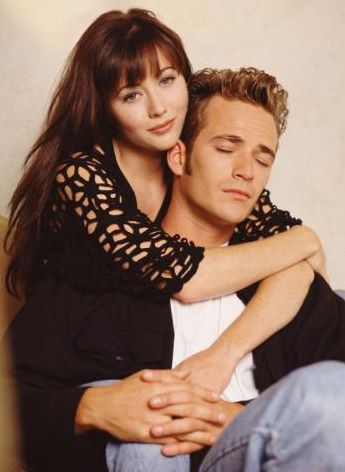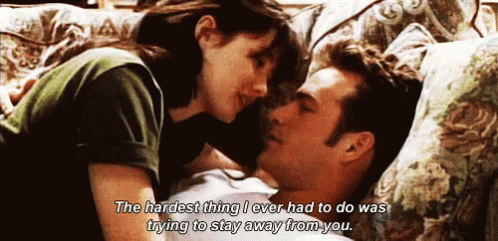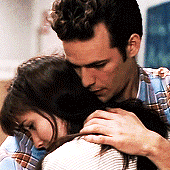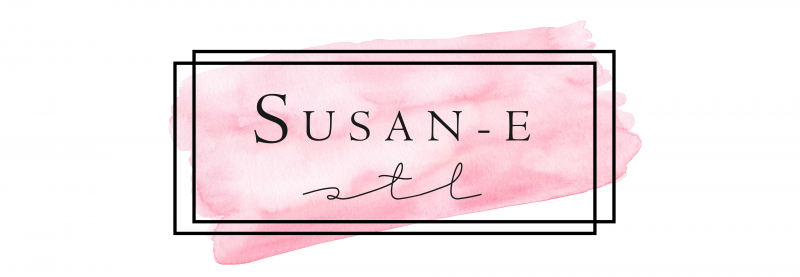The autumn of 1990. Sinead O’Conner’s “Nothing Compares 2U” had just cleaned up at the MTV video awards. Madonna was Vogue-ing right up in our faces. Stephen King’s “Four Past Midnight” topped the best seller list. The first Bush was president, and (completely outside my radar) work had begun on the foundation of what would turn into the World Wide Web.

I had just turned 19, enrolled in art school and moved myself to Chicago. I had also just started dating what would turn out to be my first serious boyfriend, and then gone through the emotional turmoil of parting when we both went off to our respective schools. Those things would be momentous for anyone, but they were particularly trying times for me because I made a couple of really poor decisions along the way.
- Not knowing at the time how hard it would be for me (all my life) to make and keep good friends, I decided that the dorms were “too crowded” and “too small” and “too expensive” and instead I rented an apartment with a friend, more than an hour’s ride on public transit away from my college. As a recent high school graduate who was sick of routine and repetition and normalcy, I had no idea how important repeated, low-stress social contact was in the forging of friendships. Those crowded and expensive tiny dorm rooms would have helped me have interesting experiences, and helped me create bonds with others who shared them. Sure, I had my privacy in my apartment an hour away, but I didn’t have a good way to wander down the hall and join in on someone else’s microwave popcorn conversation at 2 a.m.
- I thought the money would take care of itself, and over-estimated my own capacity for work. I moved to Chicago with no job, took a bunch of student loans, and then tried to figure out how to pay rent and college tuition while carrying a full-time college load that required dozens of extra-curricular hours in the darkroom and out shooting. Then I took a full time job working at The Gap (I had worked for The Gap in STL, too). I thought I could handle that kind of schedule, and of course I could not. I was constantly exhausted, still broke, and had zero time to find/make friends with all my classmates who were an hour away anyhow.
- I moved to a new city at the age of 19, when I couldn’t even get into most clubs. Literally what.
I also want to remind you of the state of technology back then. Cell phones were unheard of. Some people’s parents had giant car phone packs, but that was just for business people. It was land lines only, and if you weren’t home and the person you wanted to call wasn’t home, there was no way to reach them. I know, for some of you that sounds unfathomable, but once you walked out your door to class, to work, for a social event, that was it. You were incommunicado until you saw your people in person.
And those lovely landlines? They came with long-distance charges, meaning I couldn’t even call home for free, much less my boyfriend, who not only had to be in his dorm for me to get a hold of him, he also had to have access to the phone, which any of his three other roommates might be using to talk to their own lovelorn girlfriends. Phone calls were short, and planned out strategically, at certain times every week, to ensure that everyone was available. The longer we were separated, the longer our conversations got though. One month my long-distance bill was more than my rent. That’s how much long-distance charges were. Home computers, TiVO, DVDs were all unheard of dreams, and my roommate and I had a VCR – or rather a VCP. Meaning we couldn’t record anything, but we could watch tapes. Yes, for some reason that was a thing that someone manufactured.
I was away from home for the first time, and while not exactly homesick I was heartsick, and overworked, and overwhelmed, and lonely.
Enter 90210.
The ads for the show had started in late summer. Brenda’s trembling “are we gonna make it here?” query to her brother Brandon resonated with me in ways I didn’t even appreciate at the time.
I had to see this show. But of course I wasn’t ever home when it aired, and we had no way to tape it. Enter Mom. Mom’s, the good ones who go out of their way for your teenage needs, are amazing. Every week she videotaped Beverly Hills 90210, and then mailed the tape to me so I could watch it. I hope I appreciated at the time what was, in retrospect, an absurd level of care for my needs.
The core tale of 90210 – misfit transplants trying to find their way in a new place – was naturally something I’d respond to, but even without that same parallel, the entire country soon began to catch 90210 fever. Not so much that first season, but in the summer of 1991 some genius in their marketing department decided to run a summer season. Summer was content barren back in those days, there was nothing on but daily news and re-runs. With a fresh new title sequence, a revamped theme song and the benefit of being the ONLY new thing to see, 90210 became the focus of young American culture. Dylan McKay became the sexy, bad-boy center of America’s yearning, and we all rooted for Brenda and Dylan to be able to find happiness and true love and all that jazz.
As if anyone really falls in love at 16.
As if anyone really falls in love.
It was a captivating show. Was it a good show? I don’t know. Watching it again this week (all seasons streaming on Hulu!) with new, 40-something eyes (I am older now than the actress playing the mom when the show originally aired. Yikes.) I think it was an extremely progressive show for 1990. The first season alone covers date rape, safe sex/AIDS, teen pregnancy, alcoholism, drunk driving and breast cancer/breast exams in teens. Brenda, while being involved with Dylan, has a life and plot lines of her own. Her world is centered on itself, not her boyfriend. Is the relationship troubling in some aspects? Sure. The very first (“He GETS to me, he always GETS to me.”) angsty, ragey, pot-smashing fit that Dylan throws is also the catalyst for Brenda and Dylan’s passionate first kiss. It sets up Brenda as the person who will do the emotional labor of comforting the hotheaded, broken Dylan. “You’re scaring me!” is the last thing she says before the sexy times start. Not exactly the emotional dynamic that you’re going to want to shoot for, but it’s not stalky/Twilight levels of bad, either. There are some proto-levels of feminism happening in the show, as well as some ugly normalization of stereotypical boy insists/girl resists attitudes about sex.

Is the writing over the top? Sure. Are the characters bizarrely emotional in ways that made perfect sense to 19 year old me, and seem extremely histrionic to 40-something me? Uh-huh.
(I do wonder how adults can write those kind of nonsense emotional scenes for teens that are so spot-on and accurate to the way they think. I don’t think I could get in that mindset anymore. Maybe they all had teens at home to observe.)
I had no feels at all for the safe-as-houses Brandon Walsh, but bad-boy Dylan was definitely the stuff of dreams.

In lieu of real people near me that I could hang out with and relate to, these people became my friends. Their troubles, my troubles. Did Brenda and Dylan’s breakup break my heart too? Yes. Was I over-emotionally-invested in their relationship because it was a safe place for me to store how confused I was about my own relationship and life? Yes.
I didn’t make it in Chicago.
Over the course of the next ten years the show was on the air I would move home, move out again, move home again and move out of the whole goddamn country. Before 90210 ended I had stopped watching, as I could no longer relate to it. Instead of caring too much about 17 year olds having sex at prom with their wealthy, troubled-soul boyfriends, I moved on to caring too much about 16 year olds having sex with their ancient, cursed-soul vampire boyfriends, because hey that’s totally way more relateable.
But I remember how 90210 made me feel. I remember caring SO MUCH about what happened to these characters. I remember planning my days around the show schedule. I remember the time my mom forced me out of the house when the season 2 finale was airing, saying I could tape it and watch it later. Something stopped the episode from recording (Remember, no Internet to help you catch up. If you missed it, you missed it.) and I threw a screaming fit (histrionic, much) and I don’t think I ever really forgave her. (I guess by now I should let those mailed videotapes cancel out the one missed episode, huh?)
This week the series bad-boy, the template for all my own life-long, troubled-guy yearnings, suffered a massive stroke and passed away without regaining consciousness. He was 52. I do not know how to feel exactly. My logic brain says that I don’t have any right to feel anything. I didn’t know the man, whose life was infinitely more than that one role. I feel awful for his family, his children. For his life gone so suddenly and so soon.
My illogical heart brain thinks “another one bites the dust” and the world feels so much lonelier for it. I am heartbroken for the loss of that part of my identity and my youth. For making me realize that I am the adult now.
For making me remember Michael Hutchence, with his dangerously leather-clad crotch, needing me tonight, choking to death in a hotel room.
For making me think of George Michael, who —despite never even playing for my team— reset something in the part of my brain that now decides what sexy looks like. Who, for all his gifts and talents had a life he hated so much that he had to drug himself into a stupor to escape it.
For making me remember David Bowie’s swaggering, codpieced Jareth, promising me that if I’d fear him, love him, do as he said that he would be my slave. For making me imagine him lying on his deathbed and writing songs about it.
I think about all the things that formed who I am that I will never again experience, and probably don’t even remember properly.
Aging is a bitch. Mortality is a rude shock, always. Being a person who has more to look back on than they have to look forward to is a weird feeling that is not exactly comfortable. But I do think that it’s important to recognize and reflect upon the things and people that shaped your life, and the character of Dylan McCay, as brought to life by Luke Perry, was one of those.
Godspeed, comrade.

